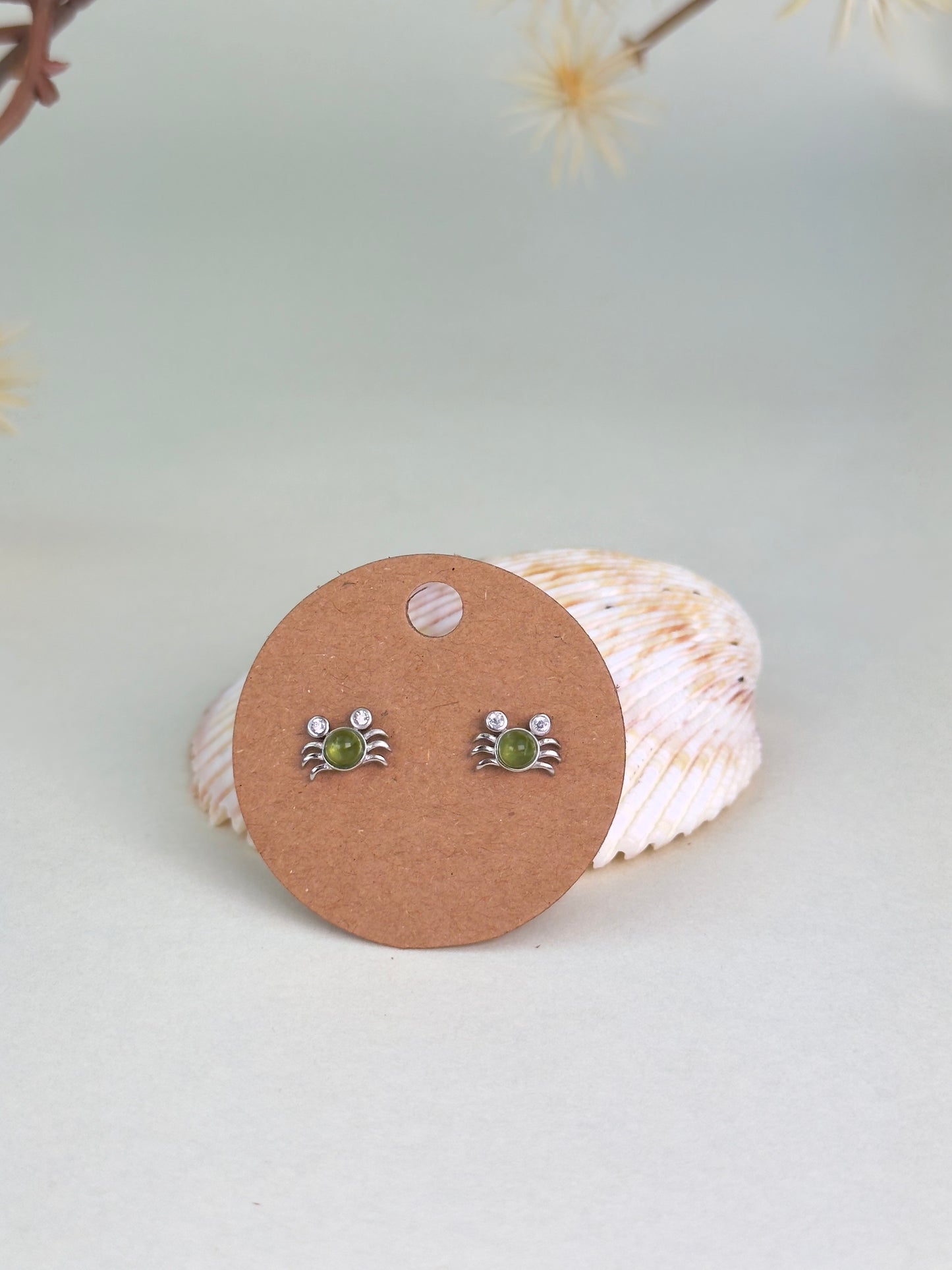Olivine Baby Crab Earrings
Olivine Baby Crab Earrings
Olivine, often known for its gem-quality form as Peridot, is a magnesium iron silicate with a distinct green hue that ranges from olive to lime green. This mineral is characterized by its high melting point and is a common constituent of basalt and gabbro, making it prevalent in volcanic regions. Olivine is valued not only for its aesthetic appeal but also for its role in geological processes, such as those that occur in the Earth’s mantle.
Olivine
Couldn't load pickup availability
Share
Physical Characteristics
Physical Characteristics
Color: Typically olive green, but can range from yellow to green to brownish-green, depending on iron content.
Clarity: Translucent to opaque.
Note: Olivine's grains are usually small and compact, often forming in mafic and ultramafic rocks. Its high melting point makes it resistant to weathering and a key component in many igneous rocks.
Metaphysical Properties
Metaphysical Properties
Physical and Emotional Healing: Olivine is thought to have healing properties that aid the body by releasing stress, encouraging renewal, and supporting recovery from physical ailments.
Harmony and Balance: Promotes a sense of balance and harmony with nature, aligning the individual’s life rhythms with those of the Earth.
Growth and Prosperity: Often associated with positivity and abundance, Olivine is believed to foster growth in various aspects of life, including personal development and wealth.
Crystals that Pair Well
Crystals that Pair Well
Peridot: Being the gem-quality variant of Olivine, Peridot enhances its healing and protective qualities.
Black Tourmaline: Provides grounding and protection, enhancing Olivine’s stability and resilience.
Citrine: Boosts the prosperity aspect, amplifying the positive energy and abundance associated with Olivine.
Composition and Structure
Composition and Structure
Physical Properties: Olivine has a hardness of 6.5 to 7 on the Mohs scale and is highly resistant to heat and weathering, which is why it's commonly found in volcanic ashes and meteorites.
Optical Properties: Exhibits a glassy luster and a high index of refraction, which contributes to its bright, vibrant appearance.
Formation: Commonly forms in high-temperature environments such as the upper mantle and is often brought to the surface by tectonic or volcanic activity.

Featured collection
-
Blue Lace Agate tower [BLA01]
Regular price €38,00Regular priceUnit price / per -
Blue Lace Agate tower [BLA02]
Regular price €40,00Regular priceUnit price / per -
Blue Lace Agate tower [BLA03]
Regular price €42,00Regular priceUnit price / per -
Blue Lace Agate tower [BLA04]
Regular price €45,00Regular priceUnit price / per
Subscribe to our emails ♡
Join our email list for exclusive offers and the latest news.

![Blue Lace Agate tower [BLA01]](http://rosetopiacrystals.com/cdn/shop/files/IMG_3273.heic?v=1740320714&width=533)
![Blue Lace Agate tower [BLA02]](http://rosetopiacrystals.com/cdn/shop/files/IMG_3279.heic?v=1740321138&width=533)
![Blue Lace Agate tower [BLA03]](http://rosetopiacrystals.com/cdn/shop/files/IMG_3283.heic?v=1740322188&width=533)
![Blue Lace Agate tower [BLA04]](http://rosetopiacrystals.com/cdn/shop/files/IMG_3287.heic?v=1740322326&width=533)